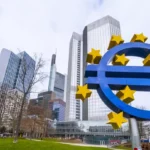In 2024, all European countries will have to provide their citizens with a Digital ID Wallet. Thanks to this electronic wallet, they will be able, from their electronic terminals, to store and manage their digital identity, and to share their verified personal attributes. Usable everywhere in Europe, it will place citizens at the center of control of their personal data and will guarantee a very high level of security.
Renting an apartment, buying a car, opening a bank account, taking out a bank loan, giving consent for a medical procedure, enrolling in a university… These now dematerialized procedures require you to fill in dozens of forms, prove their identity, authenticate themselves on a multitude of digital services (e-commerce site, public services, etc.) and sometimes send captures of paper documents by email, without any particular security, during transmission and then storage, and containing often much more information than necessary. So many complex and time-consuming operations for all users, especially those for whom the protection of rights and personal data and the mastery of digital tools and security solutions are not self-evident.
This is why the European Union, in its “Digital Decade” policy, has in particular asked Member States to offer a Digital ID Wallet. It wishes to offer all citizens the means to store and manage their digital identity, identifiers and personal attributes from an electronic wallet hosted on their personal devices (smartphone, tablet, laptop).
Available from 2024, this electronic wallet will be able to contain the verified elements of the biometric national identity card (fingerprints, photographs, textual information), authenticated and certified personal attributes (driver’s license, birth certificate, bank card, proof of address, tax form, diplomas, payslips, health documents, etc.).
Take Back Control of Your Personal Data
In two decades, our uses have become deeply digitized. Personal data which makes it possible to identify all or part of a person – civil status data, email or postal address, passwords, tax forms, salary, EDF invoice, without forgetting the transmission of personal data which does not are not yet digitized, such as diplomas, invoices and supporting documents of all kinds – are communicated to third parties (public services, private companies) and stored in huge and innumerable databases. A centralization of personal data which presents risks of cyberattacks, risks of unscrupulous use of personal data for commercial purposes but also storage energy issues.
By asking Member States to offer their residents such a digital wallet, the EU allows each citizen to regain control and use of their identity. Thus, he will be able, thanks to the technologies of the wallet, to limit the sharing of his data only to those necessary for the delivery of the service. For example, he will be able to give access to his tax income without being forced, as is currently the case, to issue his entire tax form. Citizens will also be able to retrieve their data created and verified by third parties in the form of certificates (Qualified Electronic Attribute Attestation – QEAA), store them in their wallet, and communicate them when necessary. Via this “zero knowledge proof” device, he can for example prove his majority without providing his date of birth, because the use of his wallet will guarantee that the information has been verified elsewhere.
Make Citizens The Masters of Their Identity Data
At present, all personal data of each citizen is stored in private and public databases. They will be, thanks to this wallet, decentralized and managed individually by each European citizen. By becoming sovereign of their data, they can therefore consciously choose to share them without fear and in complete security. He will thus regain control of his digital life, master his personal data and the way in which they circulate.
Scheduled for 2024, this wallet will be provided to citizens by their country of residence. Offered by each Member State, it may be issued by public or private establishments. Easy to use and interoperable, this wallet must meet technical standards and specifications guaranteeing a high level of security. If no obligation to use this European electronic wallet is required, the EU is banking on the fluidity and simplicity of such a device to convert all Europeans.
This article is originally published on decideo.fr








